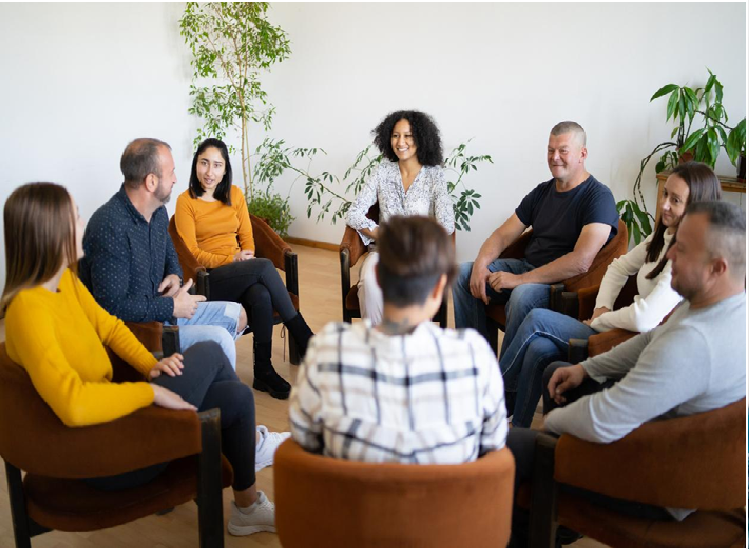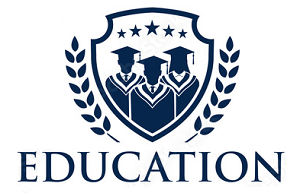
Understanding and developing cultural competencies for counselors
As the world becomes increasingly diverse, the need for cultural competence in counseling has never been more critical. In today’s interconnected global society, counselors must possess the skills and knowledge to engage with clients from various cultural backgrounds effectively. Cultural competence refers to the ability to understand, appreciate and effectively work with individuals whose cultural identities differ from ours. It involves being aware of one’s biases, assumptions and beliefs and actively seeking to bridge the cultural divide in therapeutic relationships.
Understanding cultural competencies
Cultural competencies are indispensable tools for professionals seeking to interact effectively with diverse clients. Cultural competence encompasses the knowledge, attitudes and skills required for effectively engaging with individuals from diverse cultural backgrounds. Furthermore, it goes beyond simply recognizing differences – it involves understanding their effect on an individual’s values, beliefs and behaviors.
Unraveling the complex web of identity
Recognizing cultural competencies begins by understanding intersecting identities. Those multiple aspects of an individual’s identity that come together – such as their race, ethnicity, gender, sexual orientation, religion or socioeconomic status – shape experiences, perceptions and worldviews. Cultural competence therefore necessitates openness and curiosity, with a genuine desire to comprehend and respect unique individual experiences.
The learning curve: educating ourselves about different cultures
Self-education is critical to increasing cultural competencies. This involves researching different cultural groups’ histories, traditions and societal challenges. Culture is not one size fits all, but comprises intersecting identities that uniquely impact each person’s experiences. By becoming knowledgeable about different cultures, we can start dismantling stereotypes, assumptions and biases that might exist between us all.
Breaking down barriers: challenging stereotypes and biases
Cultural competencies play a pivotal role in combatting stereotyping and biases. Understanding different cultures makes us better prepared to navigate cultural differences. This includes reflecting upon and challenging our assumptions and biases, which could obstruct effective interactions or interventions. Recognizing and addressing such biases are vital steps in developing actual cultural competence.
Cultural competencies can be complex to grasp. The journey to master them takes continuous learning, self-reflection and empathy. Recognizing and appreciating each person’s cultural identity as an intricate tapestry requires us to respect their diversity. This way, we can ensure that all of our experiences are valued equally and appreciated equally.
Importance of cultural competencies in counseling
Cultural competencies play a central role in counseling services. It enhances therapy effectiveness, building rapport with clients and increasing understanding. Let’s explore why these skills are so vital.
Enhancing therapy effectiveness
Cultural competence in counseling plays a critical role in increasing its efficacy. By better understanding their clients’ worldviews, backgrounds and experiences, counselors can tailor their approaches more precisely toward meeting those specific needs, leading to more successful therapy sessions.
Culture is pivotal in how individuals perceive and react, so understanding a client’s cultural background is critical for successful therapy sessions. Cultural competencies give counselors the tools to provide appropriate therapy services.
Building client-counselor rapport
Successful therapy requires an established relationship between client and counselor, with cultural competency playing an essential part. Respectful understanding of another culture fosters respect and empathy – important factors when building trust – ultimately enhancing therapeutic results.
When clients feel understood, they freely share their feelings, thoughts and experiences. This way, cultural competencies help create an inviting space for clients and encourage their active engagement in therapy sessions.
Promoting understanding and respect
Cultural competencies enable counselors to experience life through the eyes of their clients. Cultural competence allows therapists to gain an insight into a client’s values, beliefs and behaviors – essential components for providing respectful and inclusive therapy services.
Respecting a client’s culture helps reduce miscommunication and conflicts between members of different cultures. It also creates an accepting counseling environment where clients feel valued and heard – leading to more effective therapy sessions that produce real therapeutic value for all parties involved.
Handling cross-cultural counseling
Counselors frequently work with clients from diverse cultural backgrounds. As such, cultural competencies become even more crucial for successful counseling sessions that bridge cultural differences and similarities – leading to an effective cross-cultural counseling process.
Cultural competence refers to an awareness that each culture has distinct aspects. Awareness of cultural stereotypes and biases helps avoid miscommunication or misinterpretation, thus ensuring an inclusive counseling process that benefits all.
Strengthening counselors’ self-awareness
Cultural competencies also help counselors become more self-aware. They assist them in becoming more conscious of their own cultural biases and assumptions, leading to personal growth and improved counseling skills.
Counselors can avoid imposing their views onto clients by being aware of their cultural biases. Instead, they learn to appreciate and respect each client’s cultural viewpoint for an equitable counseling process.
Cultural competency in counseling is no longer optional but an absolute requirement. Cultural competencies enhance therapy’s efficacy, strengthen client-counselor relationships, and foster understanding and respect among clients and counselors. They facilitate cross-cultural counseling successfully, increase self-awareness within counselors themselves, and enhance personal growth. Therefore, developing them should be part of every counselor’s training and experience.
Impact of lack of cultural competencies in counseling
Cultural competency plays an essential role in counseling. With it, counseling processes may stay manageable and become effective, creating barriers that impede therapeutic progress.
Misunderstandings and misinterpretations
If a counselor lacks cultural competence, miscommunication can occur. A counselor unfamiliar with the client’s cultural background might misread their actions or words and misconstrue their feelings. This can result in inappropriate therapy strategies and the client feeling misunderstood, further damaging the relationship.
Ineffective communication
Cultural competency plays an integral role in counseling communication. Counselors must comprehend their clients’ cultural nuances and communication styles to recognize essential cues that indicate true feelings – otherwise, they risk leaving clients feeling disenfranchised from the counseling process and diminishing trust between them. A lack of cultural competence may result in ineffective dialogue.
Reduced trust and comfort
A lack of cultural competency in counseling can undermine trust. If clients feel misunderstood by the counselor, they may not feel safe sharing their feelings. This discomfort could prevent them from opening up to therapy, further limiting its effectiveness and decreasing the healing process.
Reduced client retention
A lack of cultural competencies in counseling can negatively impact client retention. If the client does not feel understood by their counselor, they may seek someone more familiar with their cultural background and leave. This could result in high client turnover, which impacts the success rate of practice and increases work stress for counselors.
Limited effectiveness of interventions
Cultural competencies can have a dramatic effect on the efficacy of interventions. When these competencies are absent, interventions may not work effectively. Counselors may only select interventions that meet client values if they understand them. A lack of cultural competency could lead to interventions being chosen that clash with these cultural norms. They would therefore be less effective or could impede therapy progress for clients.
Lack of cultural competencies
Counselors lacking cultural competencies increase the risk of harm when conducting counseling sessions, using interventions that aren’t culturally sensitive and that could cause distress to clients, leaving them feeling disrespected – both of which could negatively affect mental health and damage the relationship with their counselor.
Cultural competency gaps in counseling can have serious repercussions, leading to miscommunication, ineffective communication, decreased trust between clients and counselors, and increased risks of harm for both. Therefore, counselors must develop these abilities to provide practical yet respectful therapy sessions for clients.
Methods to develop cultural competencies
Cultural competency development is an ongoing journey that involves self-reflection, learning and active engagement. Below are some effective methods to increase cultural competency.
Self-reflection
Reflection is at the core of cultural competency. It would be best to start by becoming more aware of your biases and perspectives and understanding your cultural lens and how it shapes your views. Asking difficult questions about your beliefs, values and experiences helps identify areas for growth when understanding other cultures.
Following self-awareness, it’s essential to work to consciously broaden your perspectives. Examine your assumptions and prejudices regularly, as self-reflection helps foster empathy and understanding, making it easier to respect differences in others – this process should be completed in stages.
Cultural humility
Acknowledging your limitations in terms of cultural knowledge allows you to be more open-minded when learning from those from diverse backgrounds, shifting focus away from memorizing facts about cultures and creating respectful attitudes toward all.
It also necessitates active listening. Paying close attention when others speak about their cultures can help you form a more profound understanding while showing respect and value for their experiences. This helps build bridges and foster mutual respect between cultures.
Cultural immersion
Cultural immersion provides a direct path toward developing cultural competencies. Immersing oneself in unfamiliar cultural environments, such as traveling abroad, attending festivals or living in diverse neighborhoods, provides an immersive understanding of different cultures from an experiential standpoint.
Cultural immersion is an effective method for experiential learning. Engaging with people from various cultures deepens your knowledge while dispelling misconceptions and breaking stereotypes. You will appreciate and respect the vast array of human experiences.
Cultural competence training
Cultural competence training offers structured instruction to equip individuals with the tools to understand and interact effectively across cultures. The SBU online master’s degree in school counseling can help students to focus on cultural competence. St. Bonaventure University is well-equipped to provide students with plenty of the necessary tools and skills that are needed to be a well-rounded and successful counselor. Participating in these programs can build core understanding, practical capabilities and insights from case studies, which can increase cultural ability. Investing in yourself and developing professionally will significantly contribute to your professional advancement.
Cultural mentoring
Cultural mentoring entails learning from someone from a different cultural background. It provides insights into their culture and experiences that give a greater depth of understanding than books or training alone can offer.
As part of cultural mentoring, you share your culture with your mentor. This exchange fosters mutual understanding and respect between cultures, helping to bridge cultural gaps while cultivating empathy and appreciation of diversity.
Community engagement
Engaging with diverse communities is an effective way to build cultural competencies. Volunteering for community work, joining local clubs and participating in local events will expose you to various cultural experiences and perspectives.
Community engagement provides an ideal setting to develop cultural competencies. Interact with various groups and learn their struggles, joys and values. This first-hand experience provides a deeper insight into their culture, making the learning process more tangible and engaging.
Cultural consultation
Finally, cultural consultation is another effective strategy. This involves seeking advice or guidance from experts or elders of other cultures. This can be done individually or as a group activity, allowing people to ask questions and get clarity on cultural matters.
Cultural consultation fosters understanding and respect. It can help avoid cultural faux pas while providing accurate and pertinent cultural information. Furthermore, this method increases cultural competencies, leading to more effective cross-cultural interactions.
Role of supervision and peer support in building cultural competencies
Supervision and peer support are invaluable in building cultural competencies as a counselor. Both forms of support offer valuable opportunities for reflection, feedback and growth regarding culturally responsive counseling practices.
Supervision
Supervision can serve as an essential guide, ensuring that learning remains on track. Supervision assists learners with building cultural competencies in two ways: by instructing learners what to do and providing feedback about their progress. This two-way interaction is critical for growth and development.
Supervisors play an essential role as their vast experience can help learners understand different cultures. By sharing practical examples, they can make the learning experience engaging and dynamic.
The role of a supervisor does not stop here. They must also ensure a safe learning environment that’s free from bias and prejudice. The learning environment must also facilitate open dialogue among participants. This helps students to better comprehend different cultures.
Peer support
Peer support is also an essential factor, adding another dimension of learning while creating an atmosphere of camaraderie among classmates and encouraging the sharing of ideas and experiences.
Being on equal ground provides comfort and opens the doors for free communication among peers. These dialogues allow individuals to discuss challenges they are experiencing, share any fears they have, and brainstorm possible solutions without judgment from peers. All of this occurs in an atmosphere that’s free from judgment.
Peer support offers an invaluable learning platform. People can learn from one another as they share cultural experiences, discuss perceptions and debate ideas. This exchange enriches their learning process while opening up fresh perspectives.
Peer support can offer many unique perspectives and cultures to explore, making the experience rich and educational. Peers bring different backgrounds and cultures with them. This provides real-life exposure to different lifestyles.
Supervision and peer support are interdependent, providing each other with complementary backing. Supervision serves as a roadmap, outlining where one should go regarding learning objectives. On the other hand, peer support enriches a journey with experiences while making learning collaborative and interactive.
Ethical considerations in culturally competent counseling
Ethics are of the utmost importance when practicing culturally competent counseling, with counselors adhering to ethical standards to protect clients of diverse cultural backgrounds and guarantee their wellbeing and autonomy. Here are some key ethical considerations in culturally competent counseling.
Respect for culture
Cultural respect is vital when counseling. Understanding a client’s beliefs, values and practices requires more than simply knowing their culture – without it, counselors may appear judgmental, and their counseling relationship could be damaged.
Counselors practicing cultural respect recognize and acknowledge a client’s cultural identity, while acknowledging how culture shapes experiences such as mental health perception or seeking assistance. For example, culture might influence these areas.
Informed consent
Consent is an essential aspect of counseling. It ensures that the client understands the counseling process and potential benefits or risks, particularly within a multicultural environment.
Clients from different cultures may have varying understandings of informed consent. Some may not understand it, while others might experience language barriers to informed consent. Counselors must make sure that all their clients fully grasp this process, explaining it according to each client’s cultural background and heritage.
Confidentiality and privacy
Confidentiality is at the core of effective counseling. With confidentiality, clients may feel safe sharing their thoughts and emotions. A counselor’s responsibility lies in upholding client privacy – no information should be disclosed without first seeking approval.
However, cultural factors may alter how clients view confidentiality. In certain societies, sharing problems with a third party may not be tolerated, and counselors should respect these views and discuss confidentiality concerns with their clients.
Cultural responsiveness in assessment and diagnosis
Cultural competence is vital when conducting evaluation and diagnosis. Without it, counselors may misread client behavior, resulting in incorrect diagnoses.
Counselors must understand the cultural context of client behavior before selecting appropriate assessment tools. This will ensure accurate diagnoses while preventing mislabeling.
Power imbalance and advocacy
Power imbalances may arise in counseling sessions when counselors and clients come from distinct cultural backgrounds. A counselor could unknowingly impose their cultural values onto the client, rendering them powerless against what may seem to be happening to them.
Counselors must recognize this potential issue and strive for a balanced power dynamic. They should acknowledge clients’ experiences and perspectives and stand up for their rights while advocating for social justice.
Continued education and reflection
Counselors must dedicate themselves to continuous learning. They should aim to increase their cultural competence by learning more about other cultures, while simultaneously reflecting upon and challenging any bias or prejudice they might have.
Self-reflection is an indispensable way of learning for counselors. By reviewing their actions and attitudes, counselors can assess themselves more critically so that they may make any necessary modifications that will enable them to provide more efficient, culturally competent care for clients.
Conclusion
Cultural competencies are vital for counselors in today’s diverse society, enabling them to provide effective and meaningful support to clients from various cultural backgrounds. Counselors who consistently develop their cultural competencies can build trusting relationships, tailor interventions to meet client needs, and achieve positive therapeutic results for clients from diverse cultural backgrounds.





